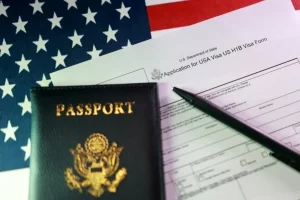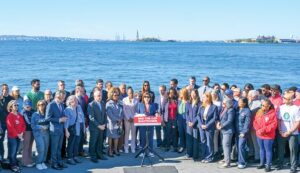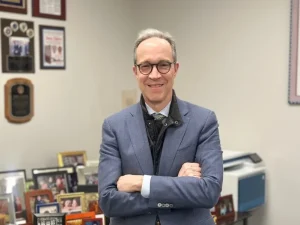Soaring tuition fees and a challenging political landscape are driving a surge in the number of American students studying abroad.
Rising tuition fees and political unrest on US campuses are driving a growing number of American students to study abroad. The latest data from the International Institute of Education shows that the number of American students studying abroad has steadily increased over the past five years, from approximately 50,000 in 2019 to over 90,000 in 2024.
![]()

Rising tuition fees and political unrest on US campuses are driving a growing number of American students to study abroad. The latest data from the International Institute of Education shows that the number of American students studying abroad has steadily increased over the past five years, from approximately 50,000 in 2019 to over 90,000 in 2024.
James Edge, president of Beyond the States, an online study abroad consultant and resource, told CBS that after the 2024 election, there was a surge in study abroad applications. “The change has been phenomenal, both in the number of applications and the types of families seeking help.” The company’s website saw visits increase from 600,990 in November 2024 to 1,534,929 in July 2025, while inquiries increased from 2,215 to 29,373.
Data from UCAS, the UK’s shared higher education admissions service, shows that the number of American students applying to study in the UK this year increased by 14%, the largest increase since UCAS began collecting data in 2006.
Experts point out that the increasing number of American students applying to universities in Europe, the UK, and Asia is primarily driven by rising tuition costs, but also by the political climate. Campuses nationwide have been rocked by protests, thousands of international student visas have been revoked, and many universities are locked in legal battles with the Trump administration.
Jyslodet Davis, 21, chose to attend Anglo-American University in Prague in August 2023. She told CBS News that her main reason for studying abroad was “not wanting to pay high tuition costs.” “I believe education should be free and accessible.”
Davis said she didn’t know anyone interested in studying abroad in high school, but since moving to Prague for university, she has traveled to 21 countries, experiencing different cultures and making friends from Brazil, Japan, and around the world.
Now a senior, Davis warns of the drawbacks of studying abroad, including visa processing difficulties, international bureaucracy, and distance from family. Her biggest concern is her lack of an American education, internship opportunities, and networking opportunities, which might prevent her from immediately entering the American job market. Davis said she has no regrets about studying abroad, and she encourages other students to explore similar paths. “If you want to do something, go for it with all your might. While you’re young, take it one step further.”
![]()







